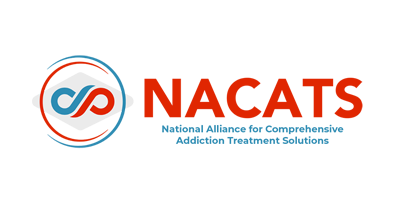
Vicodin®, a combination of hydrocodone and acetaminophen, is probably a medication that you’ve heard of before. Around 70,000 people in Tennessee are managing an addiction to opioids like Vicodin®. In the U.S., overdose deaths caused by opioids are increasing every year. Vicodin® isn’t a new opioid – it has been around since 1978. Those who have had serious injuries or surgeries are likely familiar with it, as are those who are living with an opioid use disorder (OUD). At ReVIDA® Recovery, we meet with many patients who are working to manage opioid addiction.
For many, Vicodin® can seem like a miracle drug. It eliminates moderate to severe pain, causes feelings of euphoria or relaxation, and in some cases, it can even speed up the healing process. But like most medications, it comes with a lengthy list of drawbacks. One of Vicodin®’s biggest drawbacks is the withdrawal symptoms that come when someone either lowers their dosage or discontinues use.
Table of Contents
Vicodin® Withdrawals
Vicodin® withdrawals are different for every individual. Symptom severity, the onset of withdrawals, and the overall timeline vary from person to person. One thing has been proven time and time again: opioids like Vicodin® impact brain chemistry and function. Withdrawal symptoms happen when the mind and body are working to heal from a prolonged period of use.
When any kind of opioid travels through the bloodstream and into the brain, it attaches to our opioid receptors. These receptors are critical to the health and functioning of our neural reward pathways. They’re responsible for the feelings of pleasure we receive from basic life functions like food and sex.
When Vicodin® is taken for pain, and only for a short period of time, it doesn’t radically change our reward pathways. The mind begins to get used to it when it’s taken in the absence of pain. When the opioids are taken away, the brain feels starved for those rewards. This is why people will often experience things like nausea, migraines, insomnia, or anxiety while going through withdrawals.
Vicodin® Withdrawal Symptoms
Symptoms of withdrawal can begin as early as 6 hours after the last dose of Vicodin®. They’re rarely life-threatening, but they can become increasingly uncomfortable and pose a threat to someone’s recovery.
Let’s talk about some of the most common withdrawal symptoms (keep in mind that not everyone experiences these, and most people only experience a few of them):
- Irritability
- Anxiety or panic attacks
- Depression or suicidal ideation
- Confusion or disorientation
- Intense cravings for opioids
- Tremors
- Sweating
- Diarrhea
- Night sweats
- Insomnia
- Nightmares
- Exhaustion
- Fatigue
- Tachycardia (racing heart)
How Long Does Withdrawal From Vicodin® Last?
As mentioned earlier, the length of withdrawal varies between people. There are multiple factors at play. For most people, Vicodin® withdrawals will last anywhere from 7-10 days. After that, the body and mind begin to find their “normal” again. For others, protracted withdrawal symptoms can last months or even years.
Anxiety and depression are common when someone stops taking Vicodin®, especially if they’ve been taking it for a prolonged period or if they’ve been on a substantial dosage. Further treatment (both mental and physical) may be necessary.
How long someone experiences withdrawals, and how intense those withdrawals can be, depends on the following factors:
- How much was taken – The dosage of Vicodin® that someone regularly takes can impact how intense the symptoms are during the withdrawal period. If the body and mind are accustomed to a large dose of Vicodin®, it’s going to be harder when it’s suddenly absent. It may also take the body longer to adjust to an opioid-free routine.
- The manner in which it was taken – While Vicodin® is most commonly taken in a pill form, some who misuse the drug may choose to snort or inject it. This releases the drug more quickly into the bloodstream, but it also gives the body more of a shock when it’s gone and it takes longer for someone to heal.
- How long it was taken – Opioids are only meant to be taken short-term. They’re prescribed after surgeries or serious injuries. When they’re misused (or even when they’re taken long-term for chronic pain), the probability of severe withdrawal is more likely. Protracted withdrawal is also more likely with long-term use.
- Whether it was taken alone or with other substances – Taking alcohol or other substances alongside Vicodin® isn’t only unsafe, it also puts you at risk for severe withdrawals.
- Vicodin® Withdrawal Timeline
While withdrawal timelines vary depending on the factors listed above, a typical Vicodin® withdrawal timeline looks like this:
6 hours after the last dose: Uncomfortable symptoms begin. These usually involve tremors, headaches, or insomnia. Within the next 24-72 hours, the symptoms may get progressively worse. Anxiety may be present, along with sweating, diarrhea, and irritability.
72 hours after the last dose: Symptoms usually peak around the 72-hour mark. Anxiety attacks, nausea/vomiting, and even suicidal ideation can surface here. Fortunately, once the symptoms have peaked, they can begin to recede.
7 days – 1 month after the last dose: Some symptoms, like headaches or fatigue, may continue on for up to 30 days. Depression and anxiety are also common in the first month when the brain is working to find balance without opioids. After 30 days, any withdrawal symptoms are usually gone, especially with proper treatment.
For some people, protracted withdrawals are a possibility. This is also called PAWS (post-acute withdrawal syndrome). People who experience PAWS are much more likely to return to opioids for relief. Finding the right treatment program can help prevent this and promote overall wellness.
Getting Professional Help to Assist with Vicodin® Withdrawal
At ReVIDA® Recovery, we believe that the safest and smartest route to recovery is through treatment. Our goal is to help the people in our community reclaim their lives from opioid addiction. We start with evidence-based, high-quality treatment options:
Structured Outpatient Treatment
The ReVIDA® Outpatient program is a flexible and structured treatment. Our evidence-based treatment includes individual and group therapy, education classes, and 12-step meetings. We also connect you to resources and community partners who have joined together to assist your extended support team during treatment.
Medication-Assisted Treatment (MAT)
Choosing a MAT program means choosing support. We’ll work to decrease any withdrawal symptoms and make your recovery as comfortable as possible. Our MAT program is supervised by physicians, licensed therapists, certified counselors, care coordinators, and peer recovery specialists to oversee your progress and health – every step of the way.
Buprenorphine (Suboxone®) Treatment
Our medically supervised Suboxone® Program helps quiet the mind and prepare your body for treatment and support for long-term opiate addiction. Buprenorphine (Suboxone®) is one of the most effective and proven therapies for reducing the cravings for opioids. Unlike Methadone, this treatment can be prescribed in a doctor’s office and permits our staff to prepare you for the more important work of one-on-one therapy and strategies for daily recovery.
Counseling and Group Therapy
We believe that providing individual and group therapy is a critical component of assisting patients as they navigate the road to long-term recovery. From the moment you begin vicodin addiction treatment, you will discover that we offer a safe and supportive place to talk and learn the necessary skills that will support long-term recovery and a healthy lifestyle. Our behavioral healthcare team is composed of licensed therapists, certified counselors, care coordinators, and peer recovery specialists who are ready to guide and support you all along the way.
To learn more about treatment for substance use disorders at ReVIDA® Recovery, call us today at 423-631-0432 so we can help you reclaim your life!
Frequently Asked Questions
What is Vicodin® used for?
Vicodin® is prescribed by a physician for pain management after serious injury or surgery as a pain reliever.
Is it possible to avoid Vicodin® withdrawals?
Medication-assisted treatment (MAT) or buprenorphine (Suboxone®) treatment can be effective at easing the symptoms of Vicodin® withdrawal.









